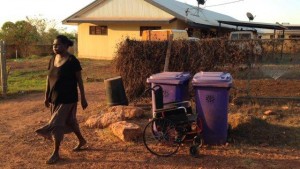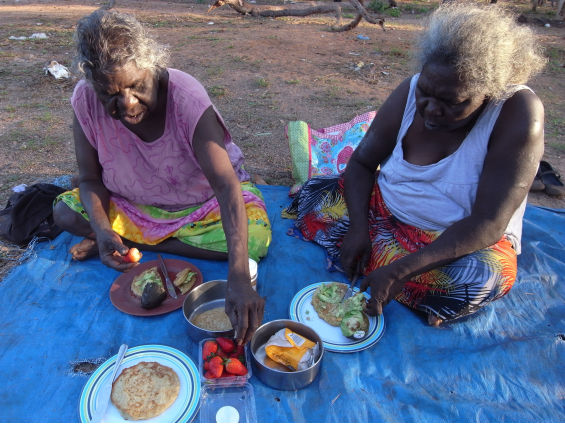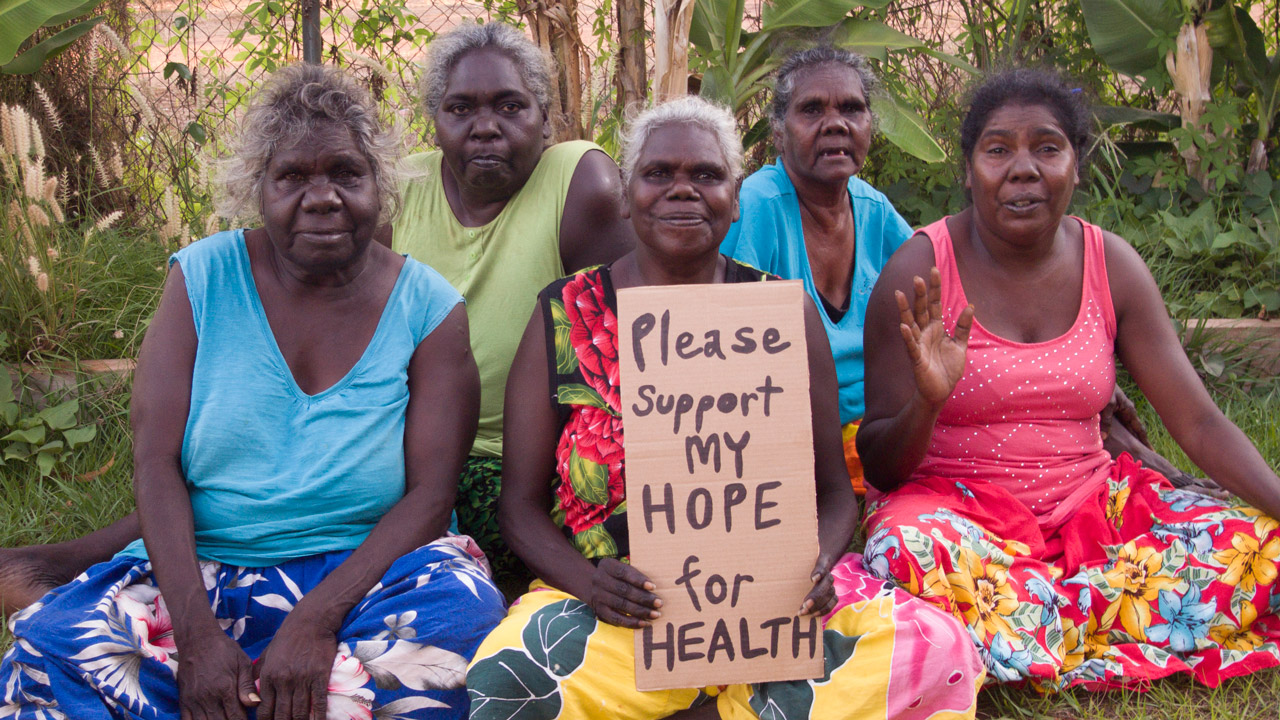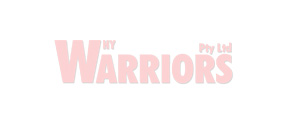Living in Arnhem Land you eventually have to face the constant climate of grief and tragedy that the local people must endure. It is played out most concretely in the constant string of funerals. There are literally bodies lined up in morgues, as families plan funeral dates to avoid too much over lap with other funerals in the community. This situation is partly because funerals are community events, that go for weeks rather than a day, but it is also because its like a war zone over here. A war that most Yolngu (the people of Arnhem Land) have no idea how to win. Yolngu face an epidemic of disease. Chronic preventable disease. A week that goes by without an announcement of another death is a very good week. And every other week leaves people wondering, why are we dying? Young people in their 20’s and early 30’s now die from sudden heart attacks or strokes. Why?… Till recently Yolŋu have had no evidence that these diseases are preventable and that this situation can change. But Dianne’s transformation (See a video of Dianne telling some of her story) from wheel chair bound deteriorating diabetic to energetic evangelist for good food, provided the evidence. Suddenly people saw some hope, a real hope for good health. And so was born a vision for an intensive healing program in Galiwin’ku that could coach people into good health. A group of ladies plan to build this solution, but they need help themselves to change their own health first, and build extensive knowledge of health management. They need a health boot camp to take their concept further. This health coaching intensive will include a low stress environment, pristine food, support for smoking and sugar withdrawal, sleep re-patterning, exercise and an extensive education program about the role of these things for health. We have identified an established health retreat where we can provide this to start their journey, so that they then have the expertise to build the local solution. We are now fundraising to get them through a 2 week program at the retreat. Please visit www.startsomegood.com/hopeforhealth and donate or share the story with others.

This program will change the climate of poor health in Arnhem Land, because this is driven by strong partnerships between experience community workers (My wife Kama who trained as a doctor, with some support from me) and local Aboriginal people who have had an epiphany of the potential to change their circumstances. And the amazing thing is that the change will start after just a few weeks for these ladies. It was just 3 weeks for Dianne to feel her vitality change. And this change has an electric effect on people around who see the health they want. This is how the movement will gain momentum. But it must start with a journey to a place where there is experience in supporting the healing and revitalization process (see Hope for Health campaign for more details).
Two main questions arise from this idea to take a bunch of Indigenous ladies to a Health Retreat. Everyone agrees remote Indigenous communities like Galiwin’ku need health coaching programs but,
- “Why don’t we just run a retreat here in the community to start with?”
- “Why is this going to result in real change, where so many other workshops and camps, and nutrition programs have failed?”
“Why don’t we just run a retreat here in the community to start with?”
Why Warriors has long pointed out the problems with taking people out of their community to “show them the world” so to speak. So why is it right to take people away to an establish Health Retreat? Hope for Health started as the result of a partnership between Kama Trudgen a trained medical doctor and Yolngu ladies in the community. Together they determined that they needed an intensive experience, but the Ladies have little idea how to do this for themselves.
- Just practically there is not the human resources or infrastructure here to run one. So unless Kama, who is also a full time mum!!!, some how makes the time to create a health retreat locally by herself, there is no option but for these ladies to travel elsewhere.
- The Yolŋu ladies need to gather knowledge and ideas about how to run a health retreat. This Hope for Health is their hope not Kama’s, so if the local ladies are to be involved in building a health coaching retreat in Galiwn’ku they need to expand their knowledge about how to run one. Right now they have vague ideas about what is involved and an incomplete knowledge of using nutrition to manage disease. The trip away is the first step in the journey of understanding for these ladies both about the fundamentals of health and how to run a retreat space for coaching others. It’s about building the vision and knowledge necessary for real community involvement.
- Time is ticking for these ladies and their relatives, many of these ladies need interventions in their health now. God forbid that they should wait for a local solution, while death creeps up on them. They need better health themselves in a hurry, so they can build a solution in time to help others.
“Why is this going to result in real change, where so many other workshops and camps, and nutrition programs have failed?”
This question is about what makes Hope for Health different and more effective. I will summarize here the main reasons and then expand on them below:
- It is born out of 4 years of relationship building, and trust between a medically trained dominant culture person and locals.
- It combines giving people an experience of what eating well feels like, with education on nutrition and how to manage and reverse chronic disease progression.
- This education is based on an educational model that fills knowledge gaps. It builds on what people know and gives foundational knowledge that they are missing including the biological processes for nutrition and disease, and uses the peoples own language.
- It treats food as medicine and expects really good food to reverse chronic disease. It does not compromise on the nutritional model.
1. Born of 4 years community based engagement
When Kama and I first considered starting the AHED project in 2009, Kama was working as doctor and training to become a GP. The question we faced was, “Was she to give up her doctoring?”. When it came down to it Kama was most interested in preventative health and in General Practice there was never the time to really help patients make the life and diet changes they needed to change their health status. Kama’s frustration with managing medicines rather than tackling root cause of disease, in the end, convinced her that helping Yolŋu people gain more control over their live through starting their own endeavours might even suite her better than a career in medicine. We both secretly hoped that some Yolngu people would come to us with an endeavour to improve their health. But for four years, it seemed almost like people wanted to avoid the issue, and opportunities to talk about improving health or eating differently seemed squandered or avoided. Economics, land rights, politics, social enterprise people were excited about the possibilities, but not health. Was health too hard, too personal? After 4 years of being available for people and helping them with all sorts of other things, suddenly helping with Dianne’s transformation sparked requests from around the community to be put on the “program.” There was no program, just being there for a friend at the right time. This long term presence grounds the program is a sense of trust between Kama and the rest of the group. Kama’s experience in and with the community strengthens the understanding across the cultures and ensures that solutions the group creates will fit both the local context and incorporate dominant culture medical knowledge.

2. Combines Experience with Training
Over the years so many programs have tried to do education about preventing disease, but this training did not give people a bodily experience of feeling healthy. Many people in the community can spout all the rules; “sugar is bad” “don’t eat take away food it has too much fat” ” we should eat lots of vegetables” etc but they do not change their diet. But we now know from those few who maintained a change in their diet for more than a week, they did not at first really believe that changing their diet would actually make them feel better and give them energy… until they experience it. But for Yolŋu it is more confusing still, some coming from traditional natural diets just one generation ago, the people cannot understand why some food could be bad for you? Isn’t all food good? Why make, why sell bad food? It makes no sense to people. The experience of revitalisation cuts through this unbelief and creates the opportunity to explore these “Whys?” with a climate of belief. At the same time the learning re-enforces the experience and encourages a person to persist with the difficulties.
3. An educational model that fills knowledge gaps and uses local language.
A whole lot of education that goes on around health is superficial, it is designed on the basis that it needs to be kept simple so people will remember. As a result people get taught the “rules” and skills like cooking, but not the logical reasons why they need to eat differently. People do remember these rules, that’s why they can list off the things they should and shouldn’t be eating according to standard dietary advice. But people do not get to understand the reasons why refined sugar can be bad for you. The education we use is based on an ongoing analysis of peoples existing knowledge, and uses Indigenous knowledge and Language to explore the fundamentals of food, health and disease. For Example, we often start by exploring the different chemical components of foods and their function in the body, by reference to traditional food groups and food categories. Another knowledge gap is the difference between processed and whole foods. We explore the market forces that drives the creation of processed foods and compare the nutritional make up of natural whole foods and traditional foods, with how foods are altered and refined for sale. By doing this deep education in their language using their own complex terminology people come to have a logical understand of food such that they do not need to be give rules about what to eat. They decide for them selves. My father always taught me, “When people have a cognitive effective understanding of a subject they create their own interventions.” And more so they then have the tools to build incentive for action, the action of changing their diet.
4. We treats food as medicine without compromise
When our little hope for health movement started Kama just happened to be taking some courses in nutrition as part of a natural medicine course. What shocked us was the way the mainstream text books for dietary advise compromise the role of food in maintaining good health. For example one mainstream nutrition text book advises that diabetics should allow themselves to eat some sugar products, like lollies, as part of a balanced diet. What?! Not only is sugar (sucrose) essentially poison for a diabetic, the biochemical side-effects of processing the fructose component of sucrose is; the increase of blood pressure, the ramping up of insulin and fat production, and damage to an unhealthy liver. Similarly the advise for Aboriginal people regarding soft drinks is just as compromised. The standard educations is that you should drink diet products instead. Failing to mention that artificial sweeteners may be at least as bad or worse than sugar for overall health. With this kind of advise there is no way a person will improve their disease situation. And that is another reason why most other programs get few results, they use a mediocre standard for recommendations of diet.
On the other hand we focus on eating highly nutritious foods and advise the cutting out of all sugar (sucrose), all refined and processed foods from your diet, replacing these with natural nutrient rich whole foods. Eating this way food can help the body actually reverse the severity of their chronic diseases, even if from time to time people fail to meet the standard. This is the approach that Kama has used, with dramatic effects, including people coming off medications.
So that is why Hope for Health will work. If you would like to help Kama and these ladies make it happen why not donate or share the story with others
Our current fundraising campaign www.startsomegood.com/hopeforhealth is the first step in a larger program to run a health retreat and coaching program locally for the Aboriginal community of Galiwin’ku. We have been told the later stages are very fundable…if that’s even a word. But we need help for this first stage to ensure these ladies are empowered to change their health as the first step to them (not others) changing their community.




Sue Wilson •
Wow!! This is such good news, that nutrition knowledge is being localised and adapted to help the community. I visit remote communities often as part of ”a nutrition evangelism”approach. I offer resources in nutrition, stress management, parenting, drugs and addictions, healthy relationships, and a lot of other practical areas. I would love to talk with Kama or Tim regarding if I can be of any help in their grassroots ministry at Elcho. Blessings, yours for wellbeing of families and communities, Sue.
Tim Trudgen •
Thanks Sue,
I suggest you contact Kama through her facebook page (search Kama Trudgen). but be aware we may not be available until Feb next year its pretty hectic at the moment.